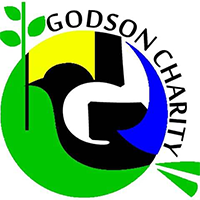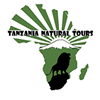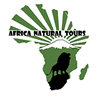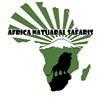
About 7 days Umbwe route Kilimanjaro Climbing Tours Packages for 2025, 2026 and 2027
Perfect 7 days Umbwe route Kilimanjaro Climbing Tour Packages for 2025, 2026 and 2027 from Moshi or Arusha. Our 7 days Kilimanjaro hike via Umbwe route begin on any date in early January, February, March, April, May, or mid-June, July, August, September, and late October, November, or December. You can climb Kilimanjaro for private or group join tours via Umbwe route in six nights and seven days. The Umbwe route, the shortest and most difficult Kilimanjaro route, is best for adventure lovers and experienced climbers or hikers. The success rate of the route is between 60% and 70%, with higher chances of reaching the summit if you give yourself extra time for acclimatization.
Inquire Now 7 days Umbwe route Kilimanjaro Climbing Tours Packages for 2025, 2026 and 2027
Get a free, best price guarantee quote and a quick response from us. Service is available 24/7.
Day One (1): Kilimanjaro hiking from Umbwe Gate to Umbwe Camp
• Rising (ft): 5,905ft /1,800m to 9,190ft /2,800m
• Stretch: 8 km
• Hiking time: 5-7 hours
• Climatic habitat: Rain Forest
Following an early breakfast, you will have a briefing from your guide at 9:00am our staff will take you on the hour-long drive from your hotel in Moshi to the Umbwe Village where your guides and porters will prepare your equipment and supplies. Kilimanjaro Park registration will be completed here and you will also receive your lunch pack. After registration, you will begin your ascent from the Umbwe gate and continue on a small vehicle path until you reach the signage notifying you have reached the Umbwe Trail. You will then climb for 5-6 hours through dense rain forest. It is impossible to miss the giant fig trees and rubber trees as in some places, their roots have overtaken the path. Although, sometimes slippery themselves they can make for good footholds when the path becomes sloppy with mud after a rain. Umbwe Camp is inside the forest and will your first stop. When you arrive, you will find your camp and tent is already set up by the porters who ran ahead. They will bring you boiled drinking water and washing water in preparation for dinner.
Day Two (2): Kilimanjaro hiking from Umbwe Camp to Barranco Camp
• Rising (ft): 9,190ft /2,800m to 12,800ft /3,900m
• Stretch: 8 km
• Hiking time: 4-5 hours
• Climatic habitat: Moorland
Rise early for coffee or tea. After breakfast pack up for the day’s trek. Your trek will begin steeply through the disappearing rainforest glades before ascending into drier air of Giant Erica and heat highland terrain where the vegetation is sparse with small shrubs. You will continue on an exposed ridge that offers you with your first view of Uhuru Peak if the clouds have parted enough. After lunch, you begin to enter into the semi-desert terrain when you trek through a garden of Senecio plants. These odd looking groundsels resemble something like a pre-historic cactus. Once you reach Barranco Camp, your porters will boil drinking and washing water before serving dinner. While you wait for your dinner you will have a chance to experience one of the most memorable sunsets you have ever seen as the sun drops through the valley. Pay attention to your body and keep your guide informed of any signs of altitude sickness.
Day Three (3): Kilimanjaro trekking from Barranco Camp Acclimatization
• Stretch: 10 km
• Hiking time: 7 hrs
• Climatic habitat: Moorland
You will spend Day 3 exploring near Barranco Camp for much-needed acclimatization. Keep your camera handy to capture the scenery of the groundsel-clad campsite. Many trekkers rank this as their favorite camp on this trail, which another reason this is perfect spot for your acclimatization day. If you are highly confident in your body’s ability to acclimatize well you can choose the 6-Day Umbwe itinerary.
Day Four (4): Kilimanjaro trekking from Barranco Camp to Karanga Camp
• Rising (ft): 12,960ft /3,950m to 13,780ft/4,200m
• Stretch: 7 km
• Hiking time: 4 hours
• Climatic habitat: Moorland
After sleeping below the Great Barranco Wall, you get your chance to tackle this hurdle. Don’t worry…it’s much easier than it looks Continue up until you reach just below the he in Glacier. Then head down through the Karanga Valley. This is the last place for your porters to gather water. They will collect all the water for the remainder of the ascent here. You will settle in here at the Karanga Camp, After lunch you can spend the afternoon doing light exploring or resting while taking in the views of Mawenzi’s towering spires.
Day Five (5): Kilimanjaro trekking from Karanga Camp to Barafu Camp
• Rising (ft): 13,780ft / 4,200m to 14,930ft / 4,550m
• Stretch: 5 km
• Hiking time: 3-4 hours
• Climatic habitat: Alpine desert
After breakfast, you’ll head east crossing over multiple ridges and valleys until you join up with the Mweka route and turn left to continue up the ridge for an hour to reach the Barafu Hut. You will arrive at camp to find your tent pitched on a rocky ridge with high winds. Be sure to familiarize yourself with the camp before dark to be safe. Also, have your headlamp/flashlight handy if you need to leave the tent after dark. You will prepare your equipment (replace batteries for headlamp and camera) before you go to bed by 7 AM and try to catch a few hours of shuteye before your summit attempt.
Day Six (6): SUMMIT DAY! Barafu Camp to Uhuru Peak to Mweka Camp
• Rising (ft): 14,930ft / 4,550m to 19,340ft / 5,895m to 10,170ft/ 3,100m
• Stretch: 7 km up and 22 km down
• Hiking time: 8 hours up, 9-10 hours down
• Climatic habitat: Arctic
Wake at 11:30 for tea or coffee and biscuits and then depart Barafu on your bid for the peak. You will climb 6 hours through thick scree following multiple switchbacks between the Ratzel and Rebmann glaciers until you reach Stella Point (18,650 ft/5,685 m). You have just completed what most climbers consider to be the most challenging part of their trek. Depending on your pace to this point you may get the chance to enjoy the majestic sunrise during your short rest here. Although you will be fatigued it is important to keep moving due to the extreme cold. At Stella Point you have joined up with the last bit of the Marangu route. You will hike along the rim for another 1-2 hours until you reach your ultimate goal of Uhuru Peak. Congratulations you are now standing on the Roof of Africa! You will have time to take pictures with the world-famous Uhuru Peak sign but it is important to begin your descent soon in order to allow yourself enough time to rest at the Barafu Camp. After a 3-hour descent down sliding scree, you will reach Barafu to have a short rest while you collect your gear and then continue down the path back into the forest camp of Mweka. You might experience a little rain in the afternoon so be sure to have your rain gear in your daypack. Enjoy some dinner and some well-deserved sleep. At Mweka Camp the office sells bottled water, soft drinks, candy bars and beer.
Day Seven (7): Mweka Camp to Mweka Gate
• Rising (ft): 10,170ft / 3,100m to 6,500ft / 1,980m
• Stretch: 10 km
• Hiking time: 3-4 hours
• Climatic habitat: Rain Forest
Wake up for breakfast as usual, pack and descend through a short scenic 3-hour hike to Mweka gate. Wait until you and all of your gear has reached the gate before you tip your staff. After registering at the gate you will wait to receive your summit certificates (green for those who reached Stella Point and gold for those who reach Uhuru Peak). From the gate if the road is too muddy for vehicles you will continue your hike for 1 hour to the Mweka Village 3km away. There you will enjoy a hot lunch before being driven back to Moshi where you can have your first hot shower in day.








